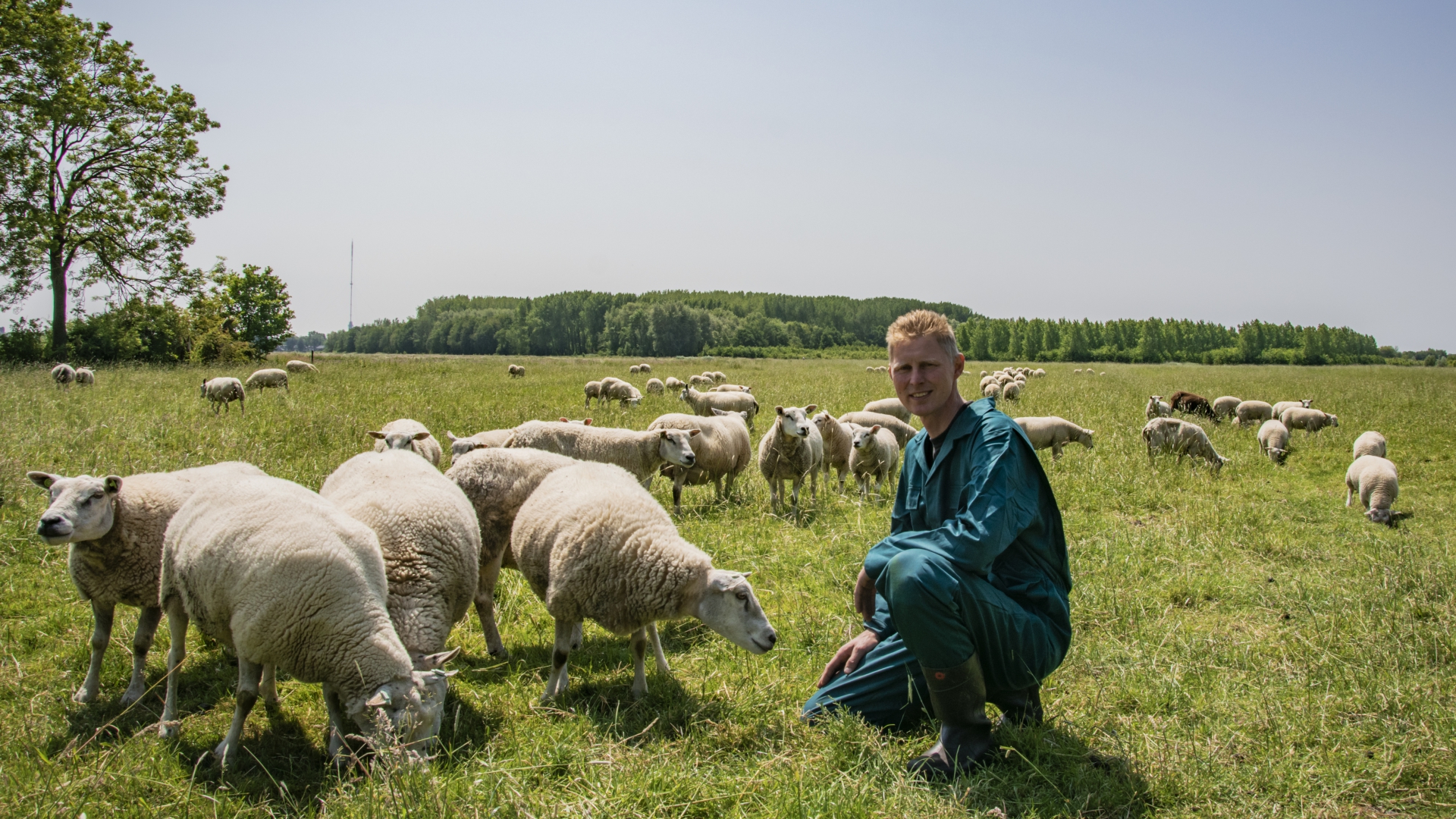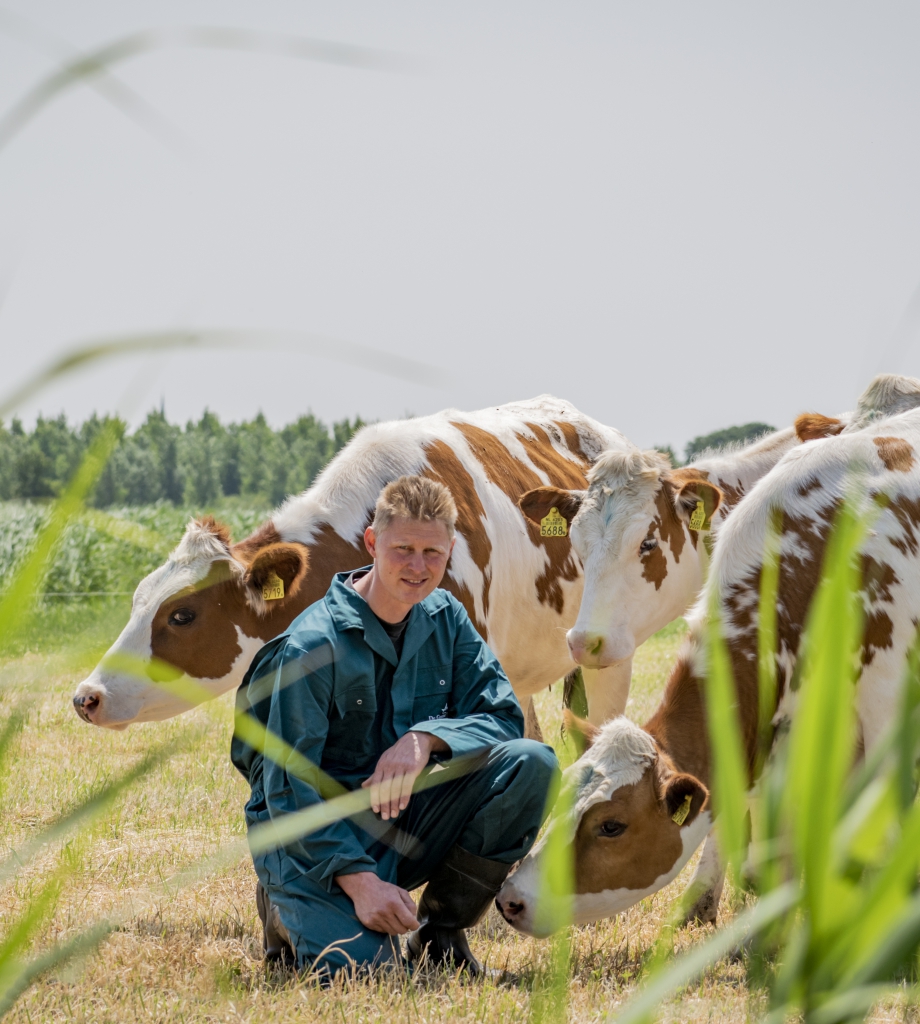Marcel Peek

In the lushest part of the province of Utrecht, about a 45-minute drive from The Hague, you’ll find Marcel Peek’s organic farm. With his 50 head of young stock (calves), 100 breeding ewes and 200 lambs, he stands out in this mostly urban environment. Marcel is certain of the importance of his little piece of nature. “I’m a natural farmer.”
When Marcel took over his brother’s farm in 2013, he immediately knew exactly what he wanted to do: he switched to organic farming. “As an organic farmer, you have the opportunity to do things differently and give nature a hand.” He works with the Dutch Forestry Commission to restore the land’s biodiversity. For example, he has installed several nest boxes for owls around his farm and created special nooks for polecats and weasels. And in his herb-rich meadow, a variety of plants, such as dandelions, sedges and clover, are allowed to grow rampantly. “As a little boy, I saw all kinds of things in the polder: lapwings, godwits, redshanks, partridges. It worries me that our landscape looks very different now. In many pastures, there’s not a flower to be seen anymore, but this kind of wild growth is so important for plants and animals.”


It’s not just the wildlife and plants that thrive on Marcel’s farm – his organic sheep and calves also have all the space they need. His lambs have more space on the 16 hectares of natural land than they would under conventional conditions. Ensuring animals have enough space is an important part of organic farming.
“The sheep love to lounge under the pollard willows. And some grasses are a real treat for the young stock.” As soon as the weather permits, Marcel’s animals are let outside. “That’s a big day for the livestock. You can see that they enjoy it! The lambs especially love to run all over the meadow. It looks like they’re racing each other sometimes.”
Marcel Peek’s sheep are a Swifter-Texel crossbreed. “The Swifter is an efficient breed,” he says. “They make great mothers. The Texel has better meat. They have good muscles, which makes the meat less fatty. That’s important because organic farmers keep their lambs for longer than in conventional farming. And organic or not, you obviously have to supply the kind of meat that the butcher can sell. When the time comes, I take the lambs to a nearby abattoir myself. My organic lamb is known for being tender. That’s because organic farming gives them peaceful lives,” Marcel explains. “It’s on a smaller scale and it’s calmer. Everything goes a little slower. The grass grows less quickly and gets longer. We really give nature the time it needs here. My lambs are truly part of the cycle of life that sustains everything. They barely experience stress at all and they live in harmony with the other animals here on the farm.”
